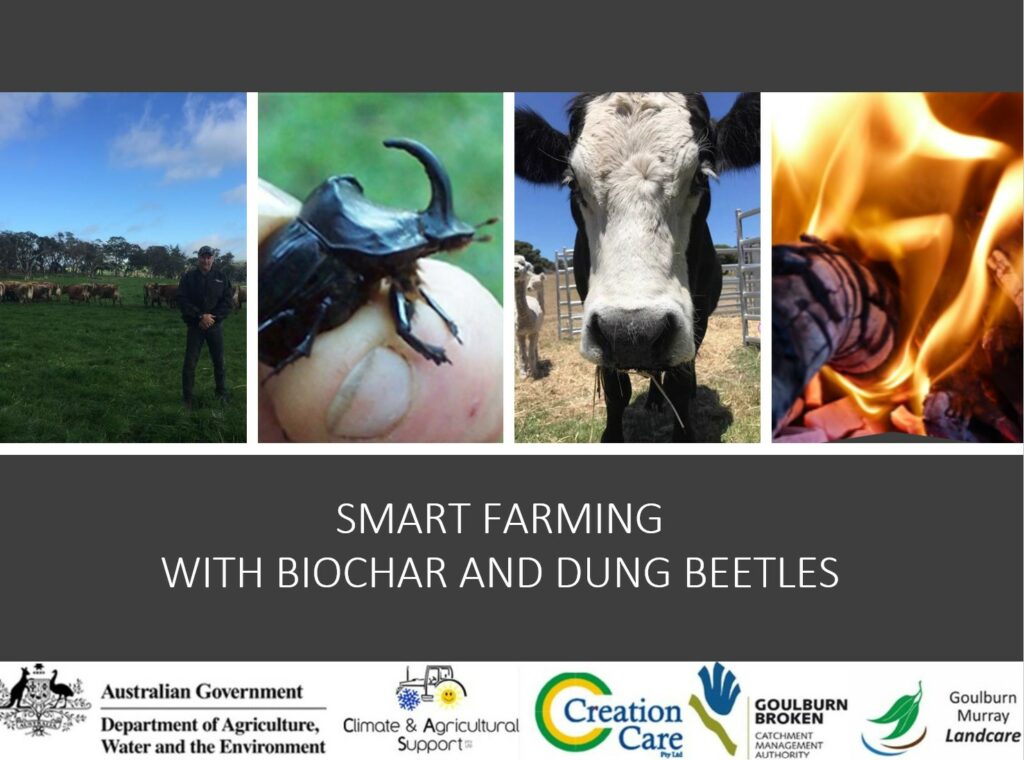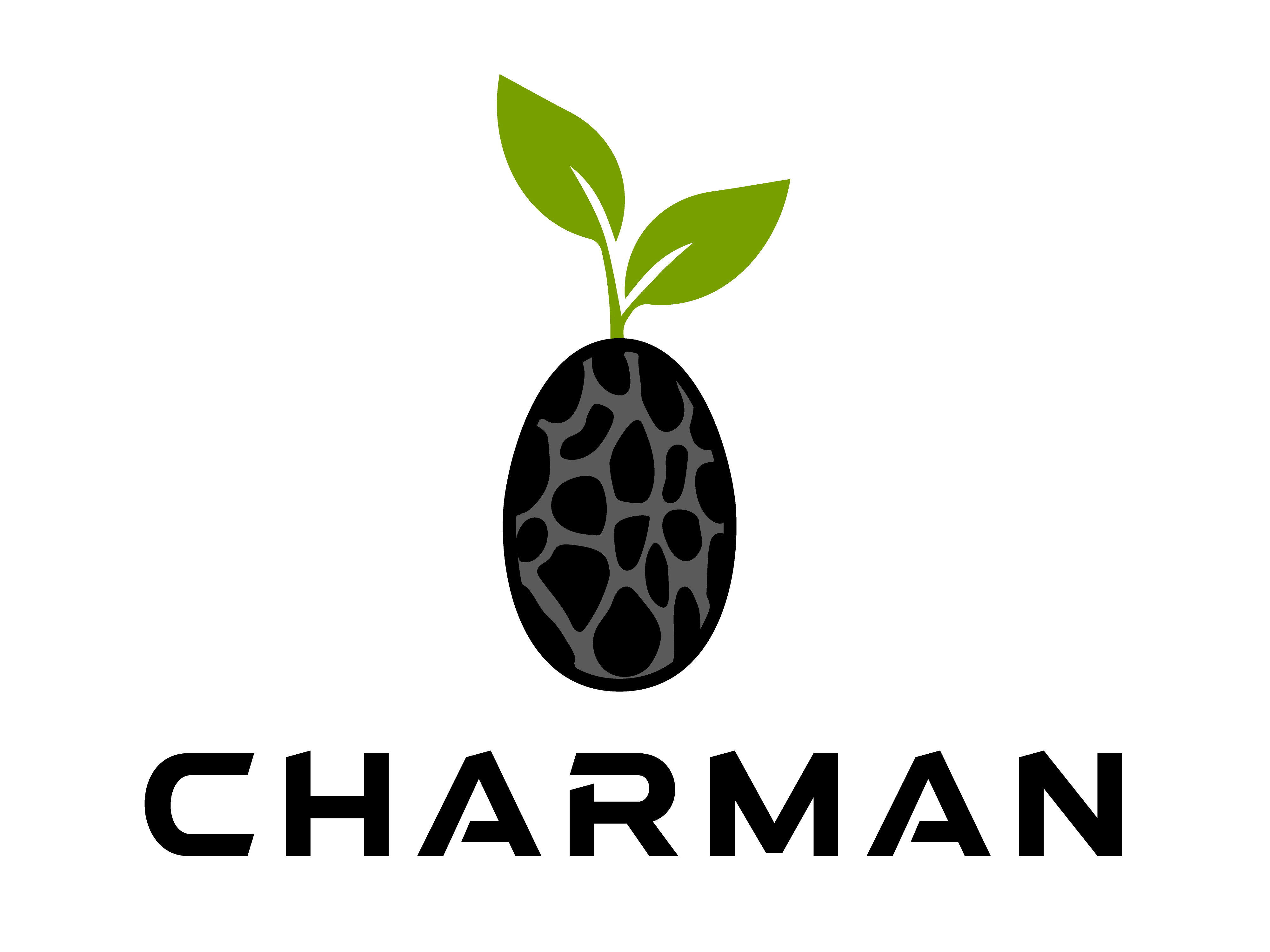Dairy and cattle farms, including members of the Regenerative Australian Farmers – Promoting Healthy Soils (regenfarmers.com.au) farming group, have been introducing Dung Beetles to their property with amazing successful results in improving soil quality, long term sequestration of carbon and economically viable value added to the bottom line.

Turns out that Dung Beetles are more partial to cow dung with biochar than dung without. So how does the biochar get into the dung. Well, that is achieved by supplying biochar to the cattle’s supplementary feed which they in turn take a liking to.
There are various studies, researched papers (refer to reference page) on this matter and in particular the work done by Mellissa Rebbeck and Team at Climate Agriculture Support and associates (www.climateagriculturalsupport.com).
The outcome is a profitable local circular economy and environmentally beneficial paddock where biochar is ingested into the animal, reducing methane emissions by>40%, sequestering the carbon out the back end drawn down by dung beetles increasing their population, pasture and animal health, and negating need for synthetic fertilisers.
Feeding biochar to an animal in the presence of dung beetles
- Improves milk fat and cattle weight production and profitability
- Builds soil carbon and health of pasture, animal and dung beetles
- Increases soil moisture holding capacity and reduces run off
- Increases soil carbon as it is 90pc carbon
- Reduces methane output and enteric fermentation
Adding biochar to soil will do all of above and below
- Reduced dependence on synthetic fertiliser
- An ability to ameliorate soil toxins
- Inc soil pH – alternative to lime and gypsum
- Increased soil water holding capacity for every 1pc carbon inc = 10t water/ha
- Improved agricultural production for every 1pc soil carbon = 10 to 30pc inc in production
